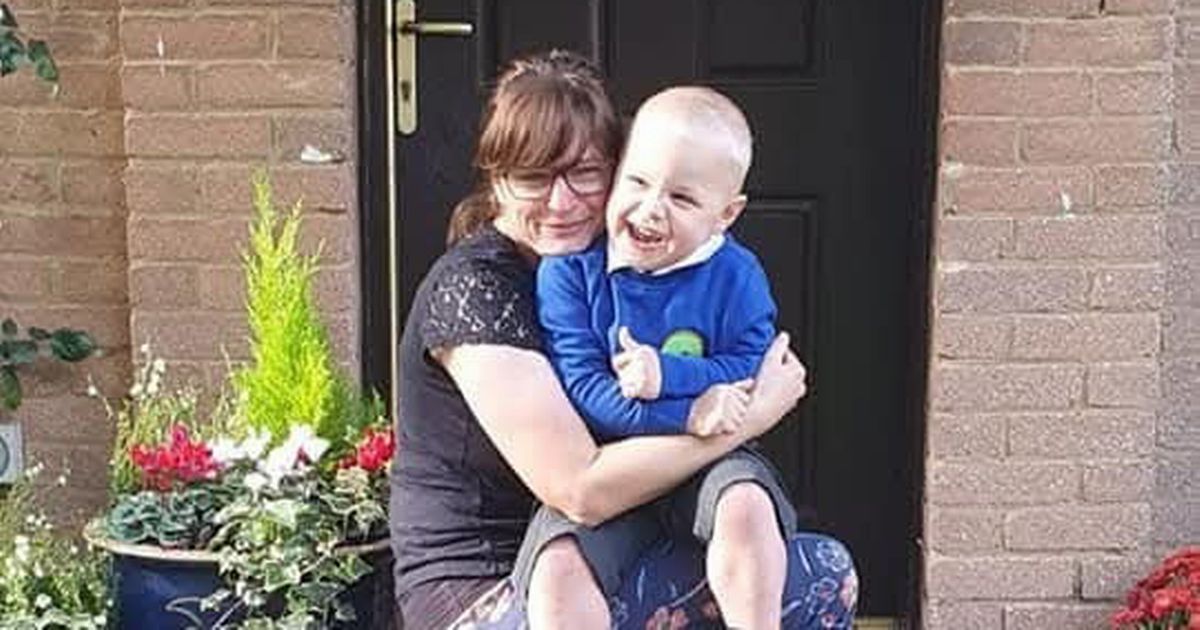Jo Phillips said her concerns were intially dismissed, but she kept researching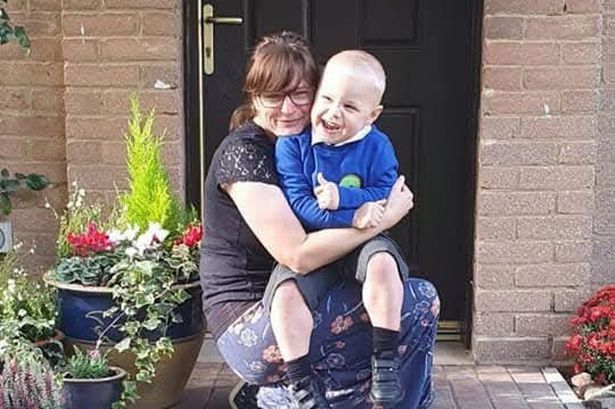 Jo with son Henry(Image: Jodee Phillips/SWNS)
Jo with son Henry(Image: Jodee Phillips/SWNS)
A mum’s gut instinct led to her son’s diagnosis of a life-limiting condition after health professionals told her “boys are just lazy”. Jo Phillips, 41, became worried when her son Henry, now nine, wasn’t hitting his milestones – such as rolling over or crawling.
But when she raised concerns with health professionals, at nine months old, she claimed she was dismissed and told “boys are just lazy” and she “wasn’t doing enough to encourage his development”. Trusting her gut, Jo started researching herself and noticed Henry’s liver enzyme levels were high at birth and at three months old.
The family was placed under a different medical team and Jo’s concerns were taken seriously. Genetic testing confirmed he had Duchenne muscular dystrophy (DMD) at 14 months old.
The rare muscle-wasting condition causes progressive muscle weakness, which has no cure, and Henry lost his ability to walk last year and now depends on a wheelchair.
Jo, a full-time carer for Henry, from Brampton, Huntingdon, Cambridgeshire, said: “One health visitor told me ‘boys are just lazy’. Another said I wasn’t doing enough to encourage his development.
“It wasn’t said to be unkind. They were just trying to reassure me. But I knew something wasn’t right and I had to keep pushing.
“Having my concerns dismissed left me feeling completely unheard. It was as if my worries didn’t matter and I was being brushed off as that overly anxious mother. I felt judged and hopeless.”
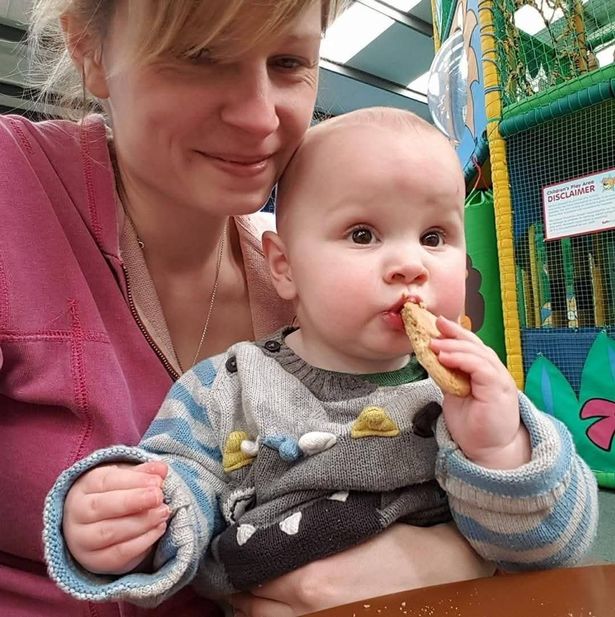 Jo with Henry when he was a toddler(Image: Jodee Phillips/SWNS)
Jo with Henry when he was a toddler(Image: Jodee Phillips/SWNS)
Jo also spotted Henry wasn’t pushing up on his arms and had lost significant weight by the time he was nine months old. When she was told there was nothing to worry about, Jo started doing her own research.
She said: “I just had this gut feeling. I couldn’t stop researching and I was terrified by what I was finding. I think deep down, I already knew.”
She combed through Henry’s medical records and noticed he had high enzyme levels at birth and at three months old.
Jo said: “No one had followed up on those results. It left me questioning why these signs weren’t investigated by the professionals who were supposed to be monitoring his health.”
In 2016, Jo’s husband Rob, 45, was posted to a new army regiment, in Colchester and the family were placed under a different medical team. This time, Jo’s concerns were finally taken seriously.
She said: “The GP was incredible. She listened to me instead of writing me off as ‘that mother’. She ran blood tests straight away.”
A blood test revealed Henry had significantly raised creatine kinase (CK) levels, and genetic testing confirmed he had Duchenne muscular dystrophy (DMD). He was formally diagnosed in April 2017, aged 14 months.
Further genetic analysis showed Henry has an in-frame deletion from exons 3 to 44 in the dystrophin gene. He was also diagnosed with severe autism at 24 months and remains non-verbal at age nine.
Jo said: “We were told there’s no treatment, no cure. Just physio and OT to manage things. I held him in my arms and cried. It was devastating.”
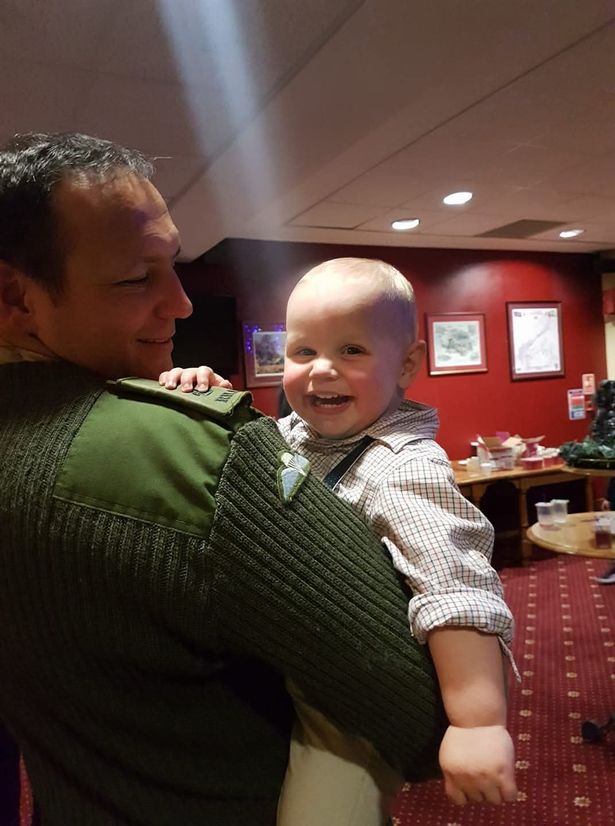 Rob with Henry when he was a toddler(Image: Jodee Phillips/SWNS)
Rob with Henry when he was a toddler(Image: Jodee Phillips/SWNS)
Despite everything, Henry is full of life. Jo describes him as a “mischievous, easy-going” boy who’s happiest outdoors, particularly at his forest school.
“He’s in his element out there,” she said. “He wants to pick up sticks, explore the woods, throw things into the lake. He’s never stopped wanting to do the things little boys should do.”
Henry received his first wheelchair at age three. His mobility has since slowly declined, and just before last Christmas, he lost the ability to walk altogether.
Jo said: “It was sudden. One day he was managing short distances, from the living room to the car and then he just couldn’t anymore.”
Henry now relies on a manual wheelchair full time, but it limits his independence, especially outdoors. The family is currently fundraising for an all-terrain powered chair so he can regain some of the freedom he’s lost.
Jo said: “The world’s starting to close in on him and that’s heartbreaking. He just wants to be a kid in the woods.”
Jo, who previously worked as a soft tissue therapist, has now had to give up her career due to Henry’s complex care needs. He stopped attending school in September 2023 due to anxiety and noise sensitivities, and has been unable to return since.
She said: “I’m his mum, carer, teacher and friend right now. Because of the nature of my job, I couldn’t treat clients while homeschooling and looking after Henry full-time.”
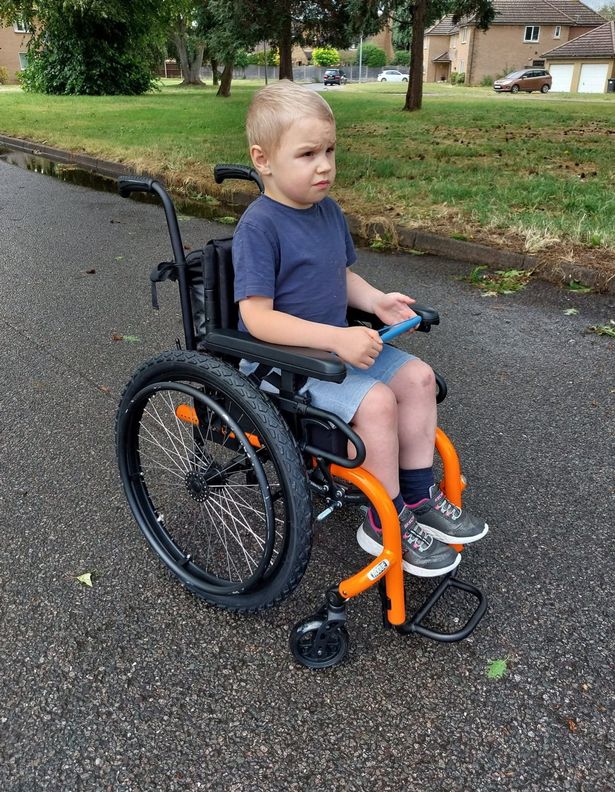 Henry Phillips(Image: Jodee Phillips/SWNS)
Henry Phillips(Image: Jodee Phillips/SWNS)
The family lives in MOD housing in Brampton due to Rob’s occupation in the army. An important person in Henry’s journey has been his big sister, Georgie Phillips, now 10, who Jo says is “his best friend”.
She said: “She plays with him in a way he can join in, she makes him laugh, she never complains. She’s central to his world.”
Jo says the diagnosis has reshaped every part of their lives, but she’s determined to give Henry as much joy as possible.
She said: “He’s so happy. He really is. And as long as he’s laughing, I know we’re doing something right.”
Now she wants to raise awareness of DMD and encourage other parents not to give up if they feel dismissed.
She said: “You know your child better than anyone. If something doesn’t feel right, keep going back. Ask again. Push harder. Because someone will listen and it can make all the difference.”
You can support Henry’s fundraising campaign for an all-terrain wheelchair via GoFundMe.
